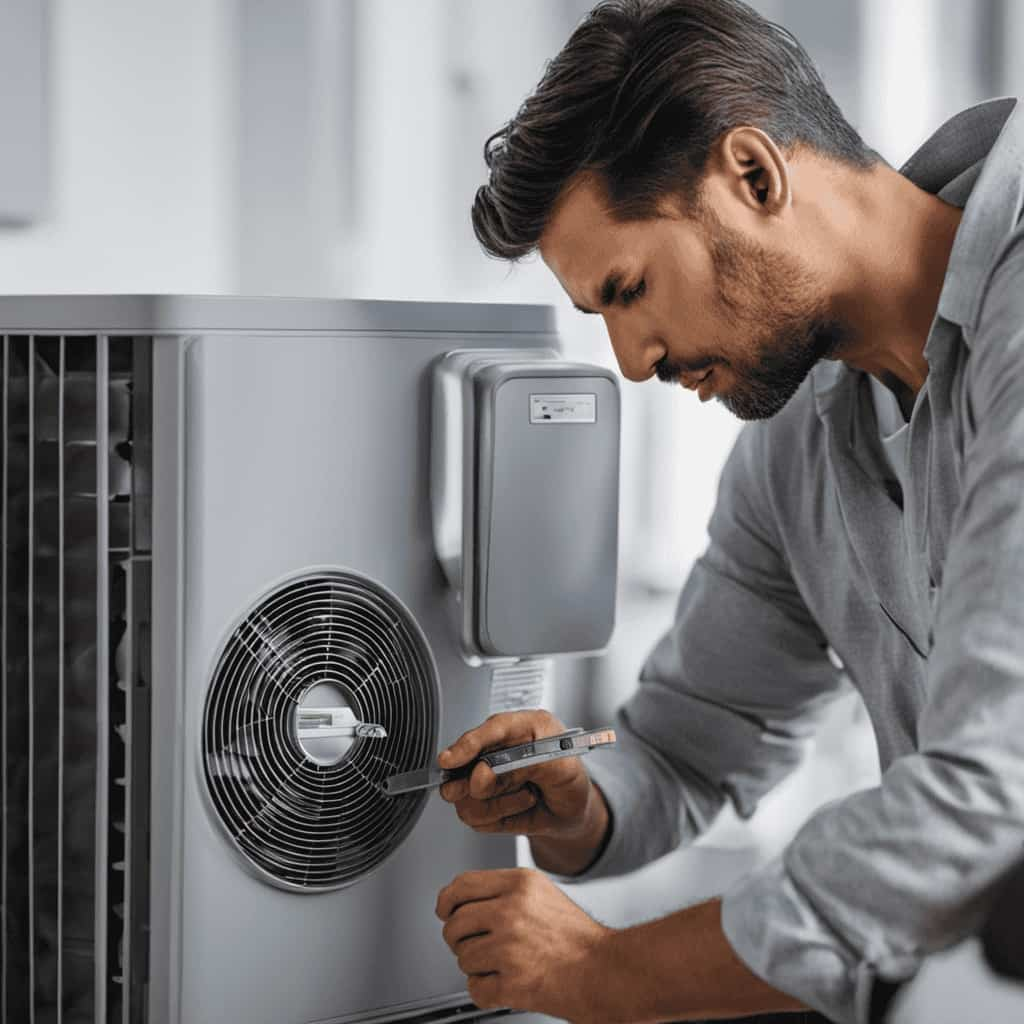Here is an easy-to-understand comparison between HVAC systems and heat pumps. We have gathered all the necessary information to help you make a well-informed choice.
From understanding the types of HVAC systems to the key components of heat pumps, we’ll explore efficiency, installation considerations, cost comparisons, maintenance, and environmental impact.
Get ready to dive into the world of HVAC and heat pumps with us. Let’s simplify the comparison and find the best option for you.
Key Takeaways
- HVAC systems and heat pumps are two types of heating, ventilation, and air conditioning systems.
- Heat pumps are more energy efficient as they transfer heat instead of generating it, leading to long-term savings in energy bills.
- Heat pumps have a lower carbon footprint and utilize renewable energy sources, making them more environmentally friendly compared to HVAC systems.
- Heat pumps require less maintenance and have lower maintenance costs due to fewer moving parts, reducing the chances of mechanical failures and expensive repairs.
Types of HVAC Systems
We will now explore the different types of HVAC systems available in the market. HVAC (Heating, Ventilation, and Air Conditioning) systems are designed to regulate temperature, humidity, and air quality in indoor spaces. There are several types of HVAC systems that you can choose from, depending on your specific needs and preferences. The most common types include split systems, packaged systems, ductless systems, and geothermal systems.
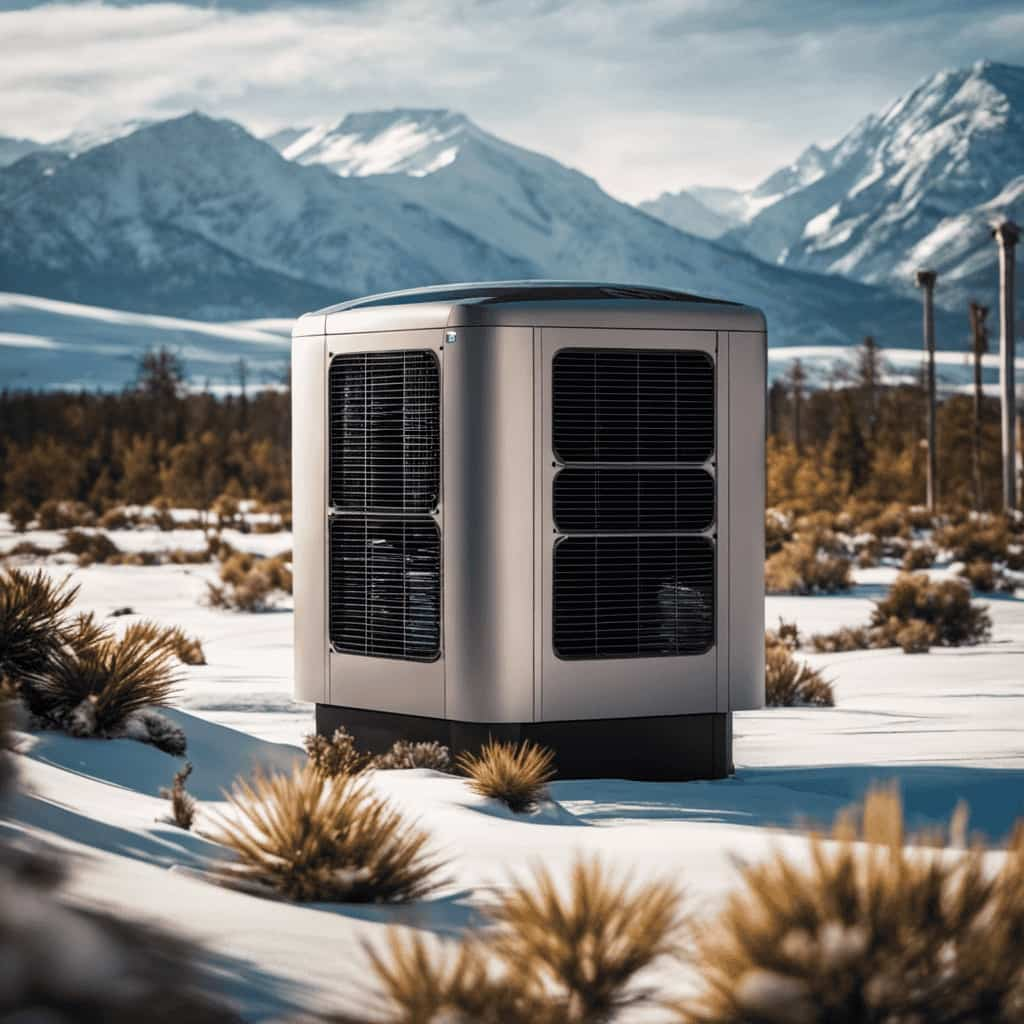
Split systems consist of an indoor unit and an outdoor unit, connected by refrigerant lines. Packaged systems, on the other hand, have all the components housed in a single unit, typically installed on the rooftop or a concrete pad. Ductless systems, as the name suggests, don’t require any ductwork and are ideal for spaces where installing ducts isn’t feasible. Geothermal systems utilize the earth’s natural heat to provide heating and cooling.
When it comes to the benefits of heat pumps, they’re highly efficient and can both heat and cool your space. They work by transferring heat from one area to another, rather than generating heat. This makes them more energy-efficient compared to traditional heating and cooling systems. Heat pumps also provide consistent and even heating or cooling, improving comfort levels in your home or office. Additionally, they’re environmentally friendly as they produce fewer greenhouse gas emissions.
Key Components of Heat Pumps
The key components of heat pumps are the compressor, condenser, evaporator, and expansion valve. These components work together to efficiently transfer heat from one location to another, making heat pumps an effective and energy-efficient heating and cooling solution.
-
Compressor: This component is responsible for compressing the refrigerant, raising its temperature and pressure.
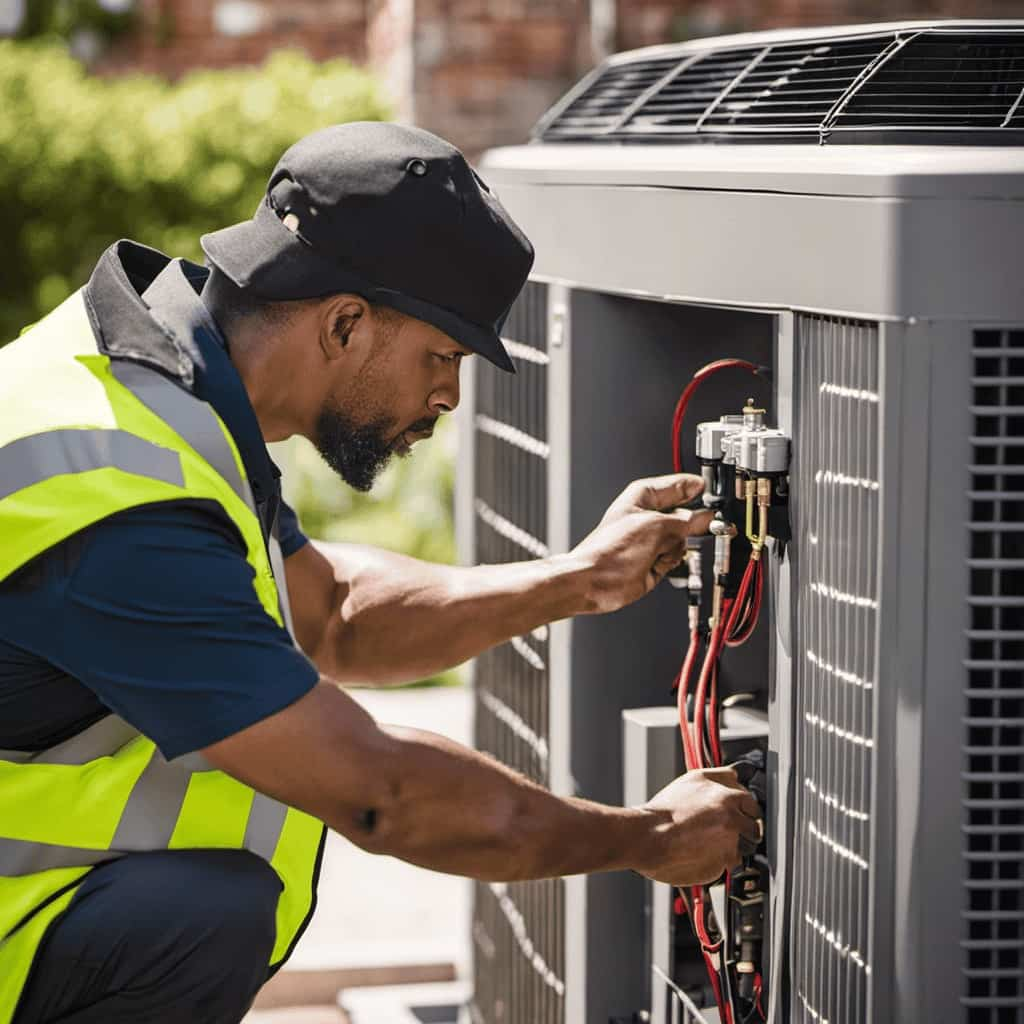
-
Condenser: The condenser releases heat as the compressed refrigerant flows through it, allowing the heat to be transferred to the surrounding environment.
-
Evaporator: As the refrigerant expands in the evaporator, it absorbs heat from the surrounding air or water, cooling the area.
-
Expansion Valve: The expansion valve regulates the flow of refrigerant, allowing it to expand and cool down as it enters the evaporator.
These heat pump components are essential for the operation of heat pump technology, ensuring effective heat transfer and energy efficiency.
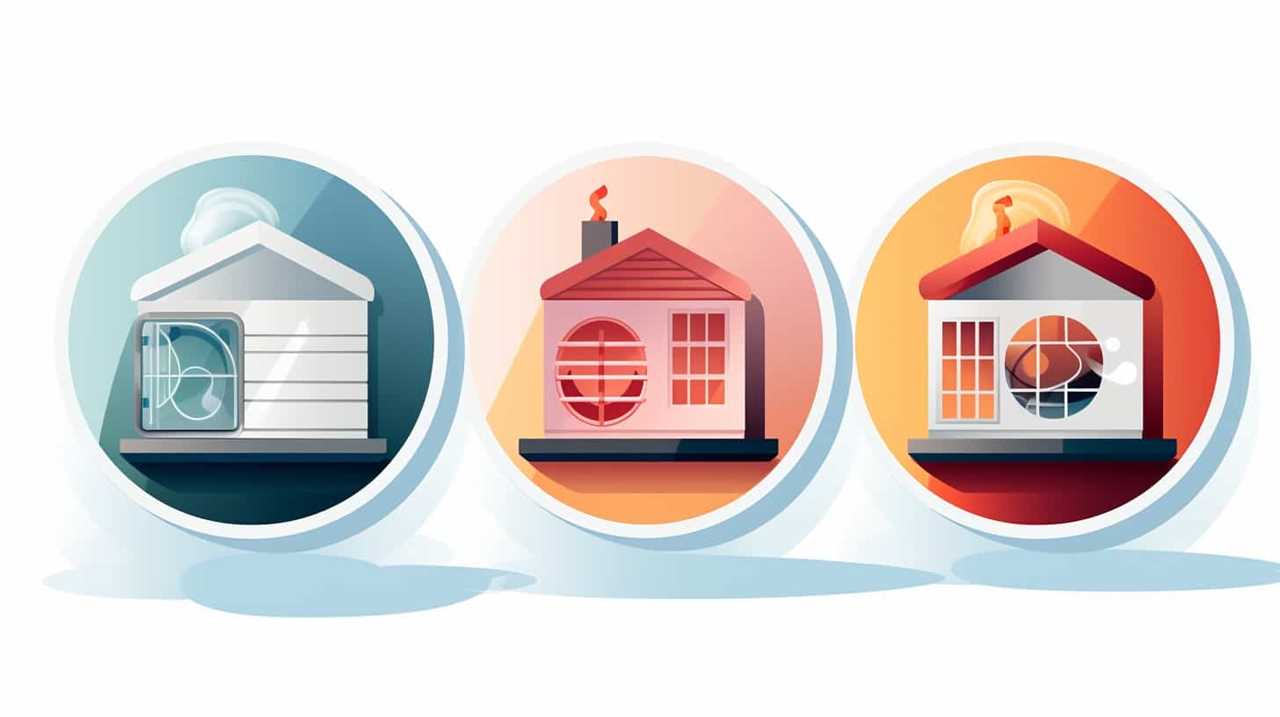
Efficiency Comparison: HVAC Systems Vs. Heat Pumps
When comparing the efficiency of HVAC systems and heat pumps, there are several key points to consider.
First, energy consumption differs between the two systems, with heat pumps generally being more energy efficient due to their ability to transfer heat rather than generate it.
Second, a cost-effectiveness comparison is essential, as heat pumps may have a higher upfront cost but can lead to long-term savings in energy bills.
Lastly, assessing the environmental impact is crucial, as heat pumps have lower greenhouse gas emissions compared to traditional HVAC systems.
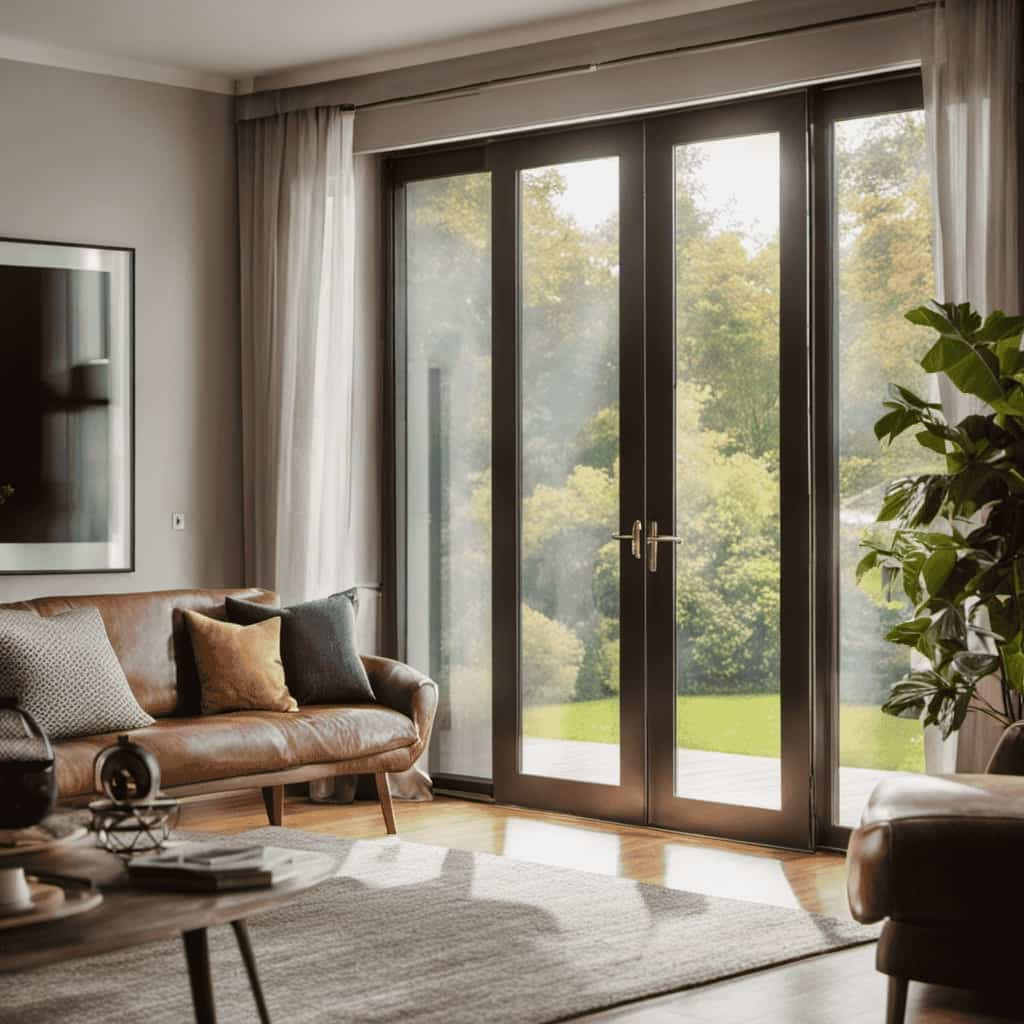
Energy Consumption Differences
In terms of energy consumption, there are significant differences to consider between HVAC systems and heat pumps. Understanding these differences can help you make an informed decision when it comes to choosing the right system for your home.
Here are a few key points to consider:
-
Heat pumps are highly energy efficient, as they transfer heat rather than generate it. This means they can provide both heating and cooling functions, making them a versatile option.
-
HVAC systems, on the other hand, use electricity to power the entire system, including the heating and cooling components. This can result in higher energy consumption compared to heat pumps.
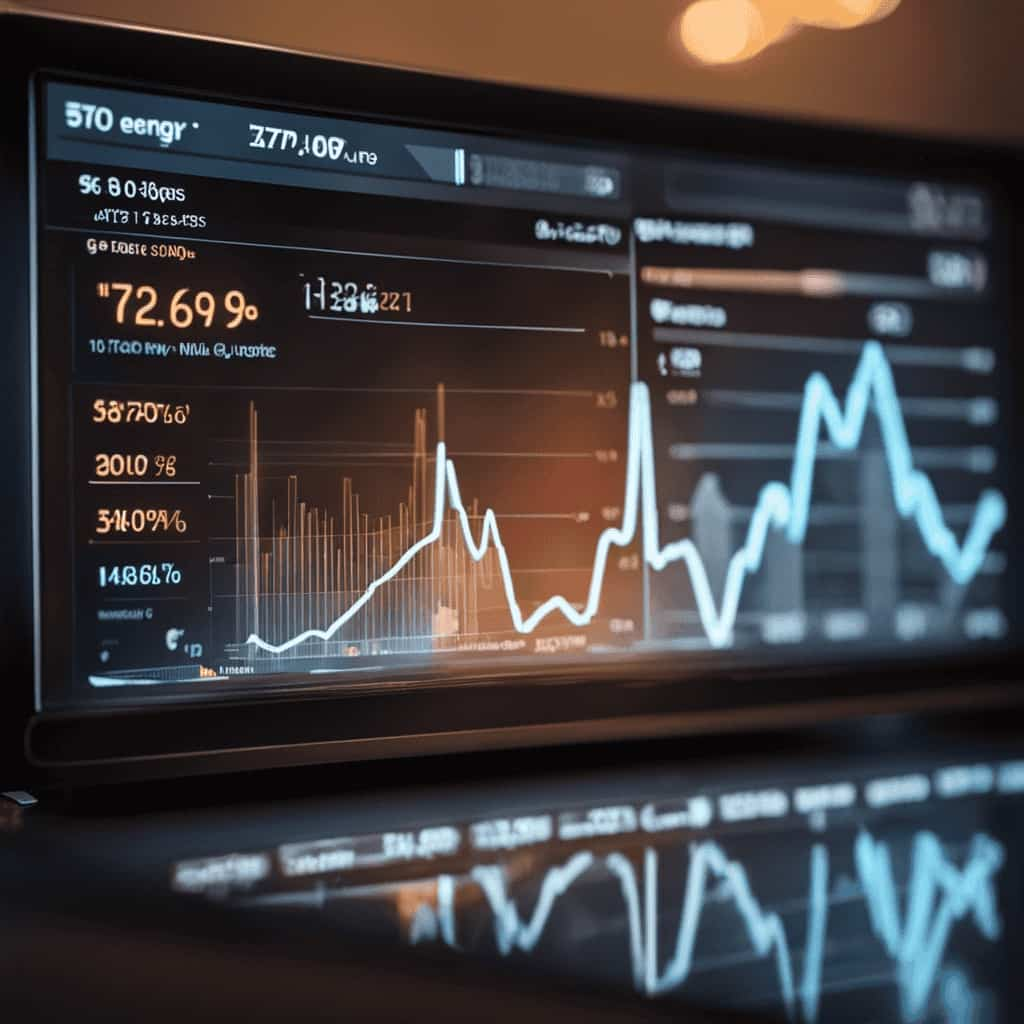
-
Investing in energy-saving tips, such as proper insulation and regular maintenance, can help reduce energy consumption for both HVAC systems and heat pumps, resulting in long-term savings.
Cost-Effectiveness Comparison
Our analysis will compare the cost-effectiveness of HVAC systems and heat pumps, specifically focusing on their efficiency. When conducting a cost-effectiveness analysis, it’s essential to consider both the initial investment and the long-term savings associated with the system.
HVAC systems typically have a lower upfront cost compared to heat pumps. However, heat pumps are known for their energy efficiency, which can result in significant long-term savings. Heat pumps use electricity to transfer heat instead of generating it, making them highly efficient. This efficiency can lead to lower energy bills and reduced operating costs over time.
While HVAC systems may be cheaper initially, heat pumps can provide substantial long-term savings through their energy efficiency, making them a more cost-effective option in the long run.

Environmental Impact Assessment
Let’s examine the efficiency comparison between HVAC systems and heat pumps in terms of their environmental impact. When considering the environmental impact of these systems, it’s important to take into account their life cycle and carbon footprint. Here are three key points to consider:
-
Life cycle: HVAC systems typically have a longer life cycle compared to heat pumps. This means that HVAC systems require more resources for manufacturing, resulting in a higher initial carbon footprint.
-
Carbon footprint: Heat pumps are known for their lower carbon footprint compared to traditional HVAC systems. This is because heat pumps utilize renewable energy sources, such as electricity or geothermal heat, to heat or cool a space.
-
Energy efficiency: Heat pumps are generally more energy efficient than HVAC systems. They can provide both heating and cooling using the same system, which reduces the overall energy consumption.
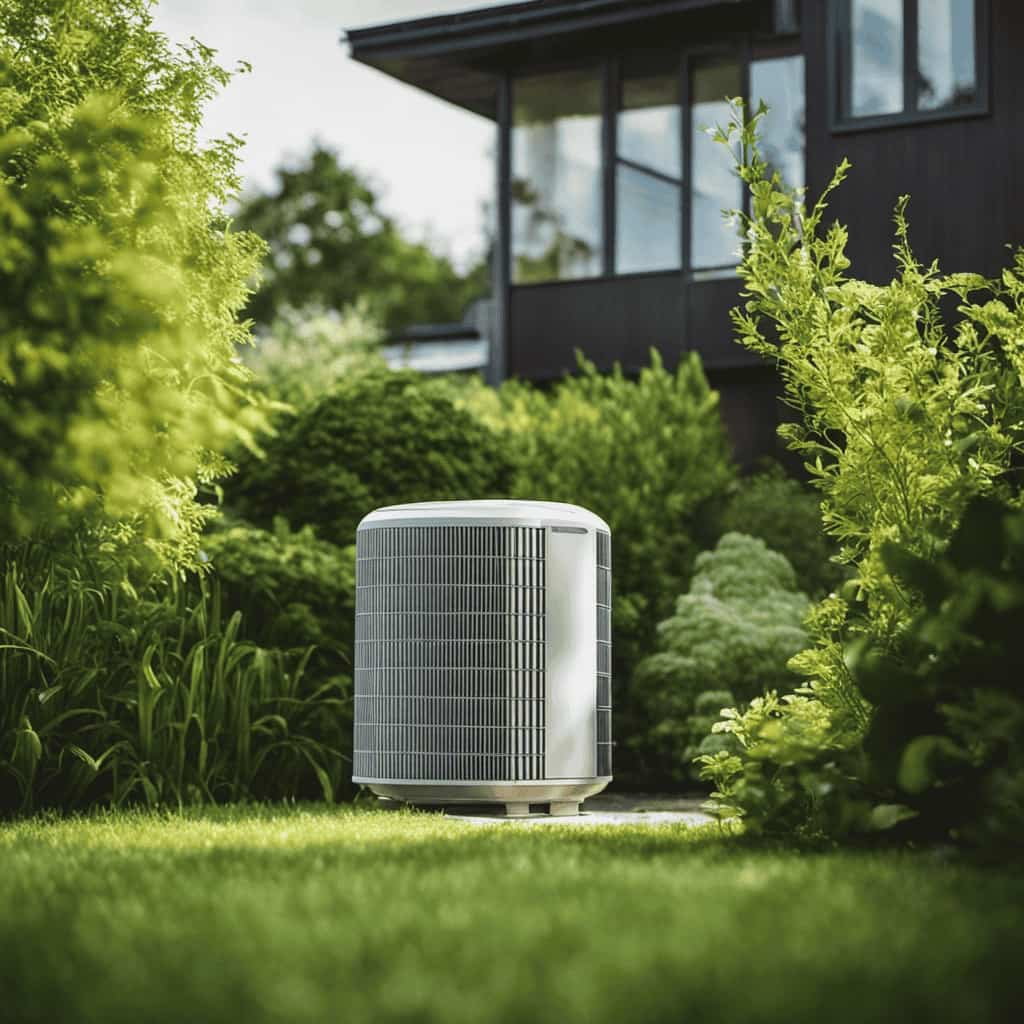
Considering these factors, it’s clear that heat pumps have a lower environmental impact compared to HVAC systems.
Now, let’s move on to the next section and discuss the installation considerations for both systems.
Installation Considerations for HVAC Systems and Heat Pumps
When considering the installation of HVAC systems and heat pumps, it’s important to evaluate the available space and electrical requirements. The installation timeline for HVAC systems and heat pumps can vary depending on the complexity of the project. It typically involves several stages, including site preparation, equipment delivery, and system assembly.
The installation process may take anywhere from a few days to a few weeks, depending on the size and complexity of the system. Additionally, it’s crucial to consider the maintenance requirements of the HVAC system or heat pump. Regular maintenance is essential to ensure optimal performance and extend the lifespan of the system.

This includes tasks such as cleaning or replacing filters, inspecting and lubricating components, and checking refrigerant levels. Proper maintenance can help prevent costly repairs and ensure the system operates efficiently.
Cost Comparison: HVAC Systems Vs. Heat Pumps
We frequently compare the costs of HVAC systems and heat pumps to determine the most cost-effective option. When it comes to cost comparison, there are a few key factors to consider:
-
Energy Efficiency Comparison: Heat pumps are known for their high energy efficiency, as they transfer heat rather than generate it. This results in lower energy consumption and reduced utility bills compared to traditional HVAC systems.
-
Long Term Savings: While heat pumps may have a higher upfront cost, their energy efficiency can lead to significant long-term savings. Over time, the savings on energy bills can offset the initial investment, making heat pumps a more economical choice in the long run.

-
Maintenance and Upkeep: HVAC systems generally require more maintenance and regular filter changes, while heat pumps have fewer moving parts and therefore require less upkeep and maintenance.
Considering the energy efficiency comparison and potential long-term savings, heat pumps often emerge as the more cost-effective option.
Now let’s delve into the topic of maintenance and upkeep: HVAC systems vs. heat pumps.
Maintenance and Upkeep: HVAC Systems Vs. Heat Pumps
When it comes to maintenance and upkeep, it’s important to consider the differences between HVAC systems and heat pumps.

With HVAC systems, regular maintenance is necessary to ensure optimal performance and prevent breakdowns. This includes tasks such as cleaning filters, inspecting ductwork, and checking refrigerant levels.
On the other hand, heat pumps require less maintenance as they’ve fewer moving parts, but regular filter cleaning and annual professional servicing are still recommended to keep them running efficiently.
Cost Comparison: HVAC Vs. Heat Pumps
The maintenance and upkeep costs of HVAC systems and heat pumps differ significantly. When it comes to cost efficiency, heat pumps are the clear winner. Here’s why:
-
Heat pumps require less maintenance compared to HVAC systems, resulting in lower upkeep costs.
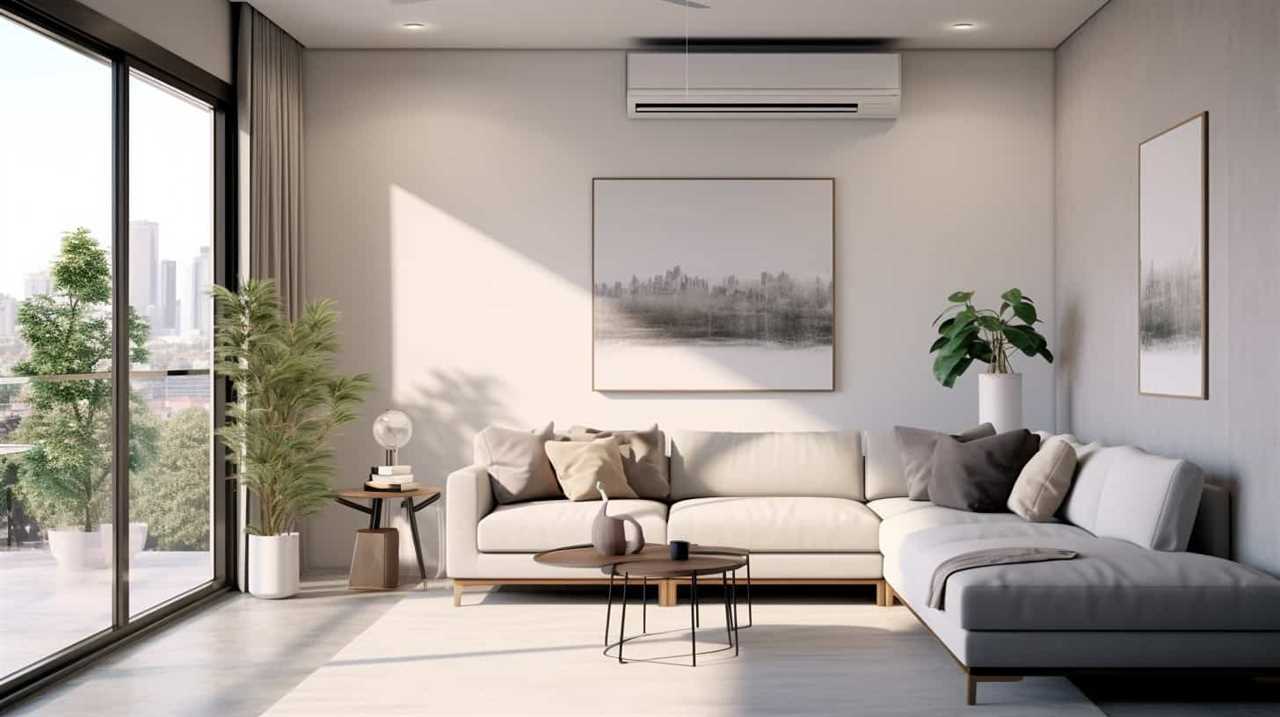
-
Heat pumps have fewer moving parts, reducing the chances of mechanical failures and the need for expensive repairs.
-
Heat pumps use electricity to transfer heat, making them more energy-efficient than HVAC systems, which burn fuel. This translates to long-term savings on utility bills.
Energy Efficiency: HVAC Vs. Heat Pumps
Our focus now turns to the energy efficiency of HVAC systems and heat pumps, specifically in terms of their maintenance and upkeep. When it comes to energy savings, heat pumps generally outperform traditional HVAC systems. Heat pumps operate by transferring heat from one location to another, rather than generating heat, resulting in significant energy savings. Additionally, heat pumps can provide both heating and cooling, further optimizing energy efficiency.
To better understand the performance comparison between HVAC systems and heat pumps, let’s take a look at the table below:

| Criteria | HVAC Systems | Heat Pumps |
|---|---|---|
| Energy Efficiency | Moderate | High |
| Maintenance | Regular filter replacement, occasional duct cleaning and inspection | Regular filter replacement, occasional inspection of outdoor unit and refrigerant levels |
| Upkeep | Regular maintenance to ensure optimal performance and prevent breakdowns | Regular maintenance to ensure optimal performance and prevent breakdowns |
As the table shows, heat pumps offer higher energy efficiency compared to HVAC systems. However, both systems require regular maintenance and upkeep to ensure their optimal performance and prevent breakdowns.
Environmental Impact: HVAC Systems and Heat Pumps
An HVAC system and a heat pump have different environmental impacts. When considering the environmental impact of HVAC systems and heat pumps, there are several key factors to take into account:
-
Energy Efficiency: Heat pumps are known for their high energy efficiency, as they transfer heat rather than generating it. This means they require less energy to operate, resulting in lower carbon emissions and reduced environmental impact.
-
Environmental Impact: HVAC systems, particularly those that use fossil fuels like natural gas or oil, can contribute to air pollution and greenhouse gas emissions. Heat pumps, on the other hand, have a lower environmental impact as they utilize renewable energy sources such as electricity or geothermal heat.

-
Sustainability: Heat pumps are considered more sustainable than traditional HVAC systems due to their use of renewable energy sources and their ability to provide both heating and cooling. This reduces the reliance on non-renewable energy and helps to mitigate climate change.
Considering these factors, it’s clear that heat pumps offer a more environmentally friendly alternative to traditional HVAC systems.
Frequently Asked Questions
Are There Any Tax Incentives or Rebates Available for Installing HVAC Systems or Heat Pumps?
Yes, there are tax incentives and rebates available for installing HVAC systems or heat pumps. These incentives are offered to encourage energy savings and promote the use of more efficient heating and cooling technologies.
How Do HVAC Systems and Heat Pumps Affect Indoor Air Quality?
HVAC systems and heat pumps greatly impact indoor air quality. They help reduce indoor air pollution by filtering out contaminants and maintaining proper ventilation. Additionally, they improve energy efficiency, resulting in cleaner and healthier air for occupants.
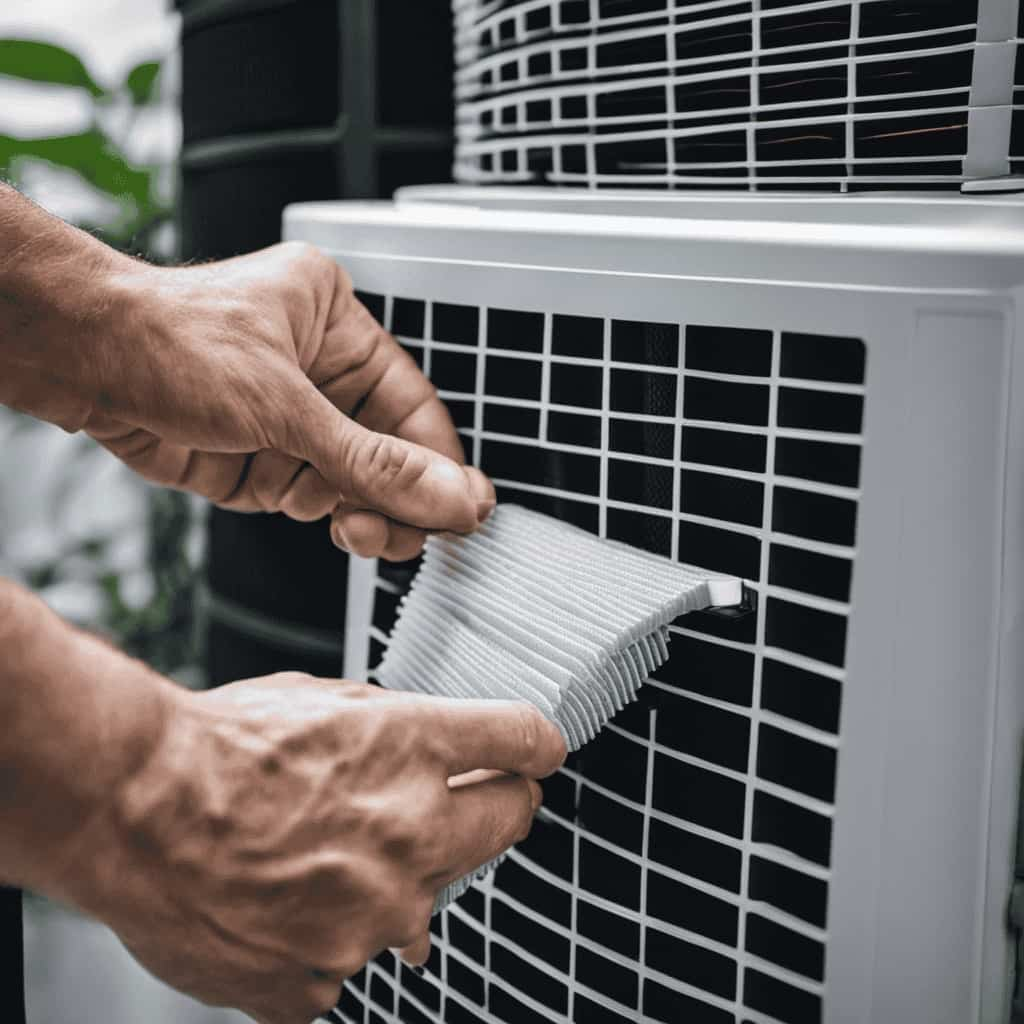
What Is the Average Lifespan of HVAC Systems and Heat Pumps?
The average lifespan of HVAC systems and heat pumps varies depending on maintenance requirements. Regular maintenance can extend the lifespan, but on average, HVAC systems last 15-20 years, while heat pumps can last 10-15 years.
Can HVAC Systems and Heat Pumps Be Used in Both Residential and Commercial Buildings?
Yes, HVAC systems and heat pumps can be used in both residential and commercial buildings. They offer energy efficiency benefits, making them suitable for various applications. Residential usage emphasizes comfort, while commercial usage focuses on cost savings.
Are There Any Specific Requirements or Regulations for the Installation of HVAC Systems and Heat Pumps in Certain Areas or Climates?
There are specific requirements and installation regulations for HVAC systems and heat pumps in certain areas or climates. These include climate restrictions, geographic limitations, and energy efficiency standards that must be met.
Conclusion
In conclusion, after comparing HVAC systems and heat pumps, it’s evident that both options have their own advantages and disadvantages.

While HVAC systems offer a wider range of options and can be more efficient in certain situations, heat pumps are generally more energy-efficient and environmentally friendly.
Additionally, factors such as installation considerations, cost, and maintenance should also be taken into account when deciding between the two.
Overall, the choice between HVAC systems and heat pumps depends on individual needs and preferences.
